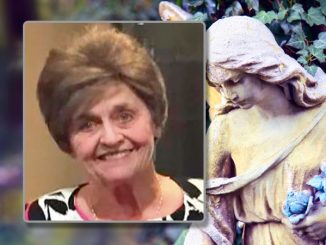
LA Politics notebook by Jeremy Alford and John Maginnis
Standing on the grounds in front of the State Capitol last weekend, Russel Honoré joined other independent authors pushing their wares at the Louisiana Book Festival.
But he was clearly among the very few with real celebrity. It seemed to play out every few minutes.
“I wanted to shake your hand,” gushed one woman. “I just love what you stand for!”
Through his performance as the so-called Katrina General and his current role as advocate for displaced residents near the Bayou Corne sinkhole, Honoré has a cache of political influence and name recognition. While speculation has often turned to when he might run for public office, his first real move in politics will come during the 2014 regular session.
That’s when he plans to cash in his chips.
“I’ve been told over and over that if you really want to change things, you have to change policies and laws,” he told LaPolitics. “We’re going to start drafting legislation and we’re working on it right now. Everyone says what I want to do is impossible. It’s not impossible.”
Honoré is still looking for legislative sponsors for his “environmental justice” package of bills, but he said there’s a large team—dubbed the “Green Army”—already working on the proposals. It will be a true grassroots effort, he added, and if lobbyists want to join up, they’ll have to do so pro bono.
“I will not be involved in anything that involves raising money,” Honoré said, adding he’s not being paid by any special interests, either.
The package will include a provision to reduce the current tax exemption for hydraulic fracturing, which should stir up a political hornet’s nest in north Louisiana, and another to strengthen regulations for aquifers, with an early focus on Baton Rouge and Acadiana.
As reported by LaPolitics in August, the Water Resources Commission is likewise trying to finish a comprehensive proposal for water management in time for the next session, although it may be pushed back to 2015. But if it does complete the task, and Honoré accomplishes his mission, the stage will be set for one of the highest profile debates on water the Legislature has seen in recent memory.
Honoré said he will also target stricter guidelines for salt domes around the state; new recusal rules for voting on oil and gas bills for lawmakers employed by the energy industry; and reform legislation to address the “revolving door” at the Department of Natural Resources.
“Too many people in that department are either coming from or going to the industry,” he said.
The retired Army lieutenant general is considering writing a new book that would touch upon the themes contained in his legislative package, an effort that would undoubtedly bring with it a certain amount of national attention.
“I want to provide people with information about the environment and Louisiana,” he said. “Our water and our wetlands would be a focus. The orphaned wells we have and the overuse of our aquifers by industry. We need to put all of this on the table as a major issue. We spend a lot of time talking about health care and the education system, but clean air and clean water are just as important to future generations.”
He recently gave a speech in South Carolina and was leaving for Florida the next day after attending a “survivors meeting” for residents living near the sinkhole in Assumption Parish. Recent weeks have also seen him giving presentations in Georgia, Missouri and Utah.
“Most of my speeches are about leadership, but I also talk about what happens when natural disasters become manmade disasters,” he said.
Approaching the next session, Honoré said three advocacy events have already been scheduled. The week before Thanksgiving, supporters will meet near Lake Peigneur. The week prior to Christmas, there’s an event at the sinkhole so “people can say goodbye to Bayou Corne.” In January, another gathering is scheduled in lower Plaquemines Parish to highlight coastal land loss.
He’s also part of a group that will soon release a list called the “Dirty 100” to profile the state’s “most dangerous” oil wells and plants-a list that will be broken down by House and Senate districts.
“We’re going to show everyone where they are in the districts,” Honoré said. “But I do get along with (lawmakers). I remind them this all started before many of them were born. Our governor was born before this assault happened, so he definitely doesn’t need to defend it.” Of course, every group needs a leader and Honoré seems well positioned for a run for public office. As a registered independent—Some time ago someone appointed me a Republican and I have no idea how that caught on,” he said—he could potentially appeal across party lines.
For now, by carrying the environmental justice banner, he’s taking on a role that has been championed by very few elected officials, most notably Public Service Commissioner Foster Campbell, a Democrat from Elm Grove.
Asked if he would ever be a candidate, Honoré doesn’t bite. But he does want to be a factor in the 2015 statewide election cycle by making his issues their issues.
“I’m all about environmental justice. That’s what I’m doing,” he said. “I’m not dealing with a whole lot of politics right not. That’s not what this is about.” For more Louisiana political news, visit www.LaPolitics.com or follow Maginnis and Alford on Twitter @LaPoliticsNow.




Be the first to comment